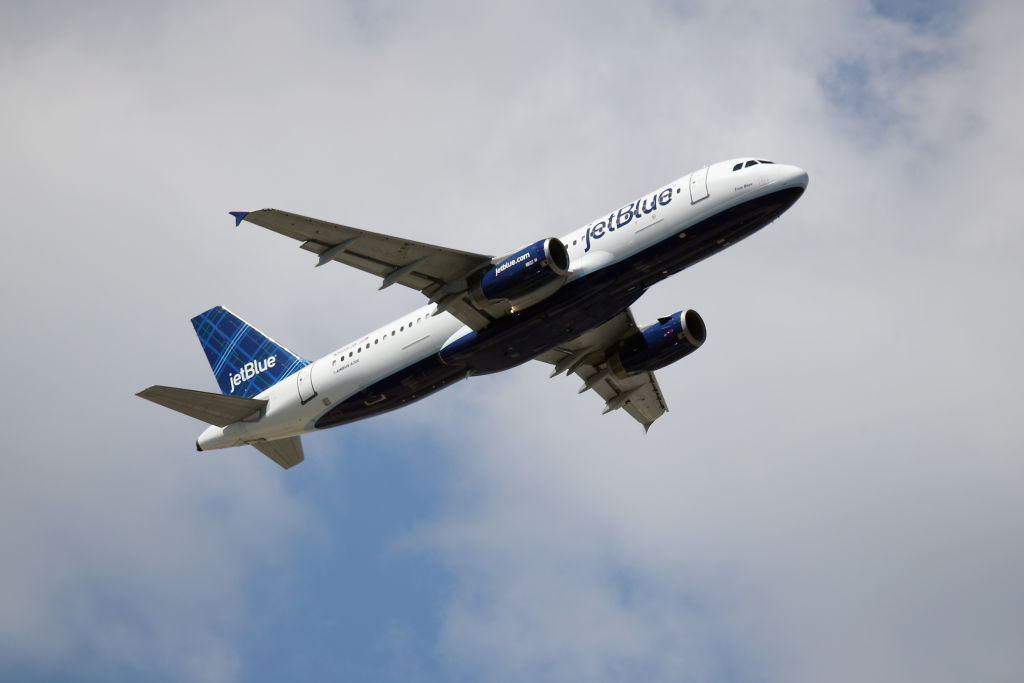JetBlue Airways Corp. plans to offset all carbon emissions from domestic flights starting in July, seeking to become the first major U.S. “carbon-neutral” airline as climate activists increase pressure on the aviation sector.
The airline is expanding on previously announced carbon offsets during specific times of the year, JetBlue said in a statement today. Since 2008, the carrier has offset more than 2.6 billion pounds of emissions in partnership with Carbonfund.org. JetBlue will continue to work with Carbonfund.org, and add new partners such as EcoAct and South Pole.
The aviation sector has come under pressure from climate activists such as Greta Thunberg, who are encouraging travelers to switch from planes to trains, which emit less carbon per passenger mile. Commercial aviation is responsible for 2.6% of global carbon emissions, according to the International Council on Clean Transportation.
“Carbon offsetting is a bridge to, not a silver bullet for, a lower carbon future.”
JetBlue plans to offset an additional 15 billion to 17 billion pounds of carbon emissions each year. That would have the same impact as removing more than 1.5 million vehicles from the road. Through the purchase of carbon credits, JetBlue will invest in projects that cut carbon in the air. This includes forestry, solar and wind, and landfill gas capture projects, JetBlue said, acknowledging the plan has limitations.
“Carbon offsetting is a bridge to, not a silver bullet for, a lower carbon future,” CEO Robin Hayes said in the statement. “We reduce where we can and offset where we can’t.”
The airline also said that it will start using sustainable aviation fuel in mid-2020 on flights leaving San Francisco International Airport. JetBlue is partnering with Finnish energy company Neste Oyj, a pioneer in renewable jet fuel.
JetBlue is following EasyJet PLC, which in November was the first airline to offset carbon emissions. Other European airlines have followed U.K.-based EasyJet.
The International Air Transport Association announced that carbon emissions per passenger have declined by more than 50% since 1990, while the number of fliers continues to surge. Much of the improvement has occurred because of fuel efficiency gains, IATA Director General and CEO Alexandre de Juniac said in December.
- British Airways began the decade offsetting all emissions from U.K. domestic flights, which is part of its aim to become carbon neutral by 2050. Emissions from BA flights are being offset by investments in verified carbon-reduction projects starting Jan. 1.
- Air France started to offset 100% of carbon emissions from domestic flights on Jan. 1. The airline also plans to curb carbon emissions by 50% per passenger mile by 2030.






















